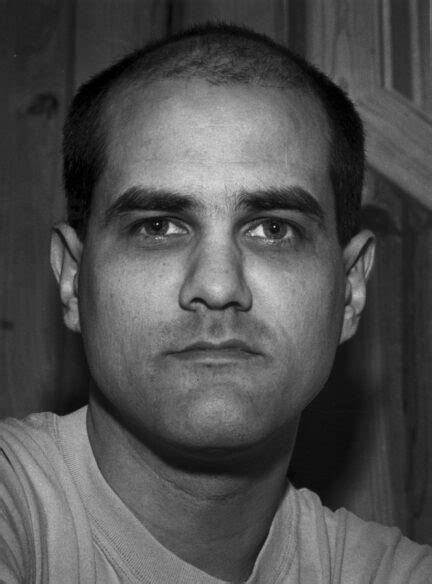A Quote by Edward Bloor
Remember that, lad, if you never remember anything else. We all touch each other's lives, for better or for worse. So say the things you have to say to people while you still have the chance.
Related Quotes
Here, when I say I never want to be without you,
somewhere else I am saying
I never want to be without you again. And when I touch you
in each of the places we meet,
in all of the lives we are, it's with hands that are dying
and resurrected.
When I don't touch you it's a mistake in any life,
in each place and forever
It's an ethical pact I've made with myself and with the reader - not to invent. And when I can't remember, I say I can't remember. I'm just appalled by the memoirs published by people who regurgitate dialogue, conversations from when they were small children, and they go on for three or four pages. I can't even remember what we said to each other ten minutes ago! How can I remember what was said sixty years ago? It's not possible.
There was a time when you were not a slave, remember that. You walked alone, full of laughter, you bathed bare-bellied. You say you have lost all recollection of it, remember . . . You say there are no words to describe this time, you say it does not exist. But remember. Make an effort to remember. Or, failing that, invent.
Think about death. You do not know how much time remains to you. And remember that if you do not become different, everything will be repeated again, all foolish blunders, all silly mistakes, all loss of time and opportunity - everything will be repeated with the exception of the chance you had this time, because chance never comes in the same form.You will have to look for your chance next time. And in order to do this, you will have to remember many things, and how will you remember then if you do not remember anything now?
People say strange things, the boy thought. Sometimes it's better to be with the sheep, who don't say anything. And better still to be alone with one's books. They tell their incredible stories at the time when you want to hear them. But when you're talking to people, they say some things that are so strange that you don't know how to continue the conversation.
If I have an unusual gift, it's not that I draw particularly better than other people - I've never fooled myself about that. Rather it's that I remember things other people don't recall: the sounds and feelings and images - the emotional quality - of particular moments in childhood. Happily an essential part of myself - my dreaming life - still lives in the light of childhood.
She looked up. "What I can't figure out is why the good things always end." "Everything ends." "Not some things. Not the bad things. They never go away." "Yes, they do. If you let them, they go away. Not as fast as we'd like sometimes, but they end too. What doesn't end is the way we feel about each other. Even when you're all grown up and somewhere else, you can remember what a good time we had together. Even when you're in the middle of bad things and they never seem to be changing, you can remember me. And I'll remember you.
People feel better because Donald Trump says all kinds of things no one else would say and we get certain tendencies out of our system. So if attacking immigrants, say, is a substitute for doing something worse, there's at least a scenario under which that's a better alternative than something else that might have happened.
Some people say they use images to help them remember intricacies. Others say they just remember. If they are able to form an image of the face, it is because they remember how it was: it is not that an image guides memory, but that memory produces an image, or the sense of imaging. We have no agreed way to talk clearly about such things.
I remember sitting in his office a hundred times during those grim months and each time thinking, What on earth can he say that will make me feel better or keep me alive? Well, there never was anything he could say, that's the funny thing. It was all the stupid, desperately optimistic, condescending things he didn't say that kept me alive; all the compassion and wamrth I felt from him that could not have been said; all the intelligence, competence, and time he put into it; and his granite belief that mine was a life worth living.
My husband is my most ruthless critic... sometimes he will say, 'It's been said better before.' Of course it has. It's all been said better before. If I thought I had to say it better than anybody else, I'd never start. Better or worse is immaterial. The thing is that it has to be said; by me; ontologically. We each have to say it, to say it our own way. Not of our own will, but as it comes out through us. Good or bad, great or little: that isn't what human creation is about. It is that we have to try; to put it down in pigment, or words, or musical notations, or we die.





































